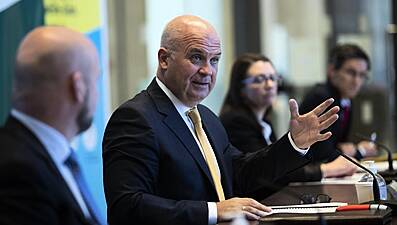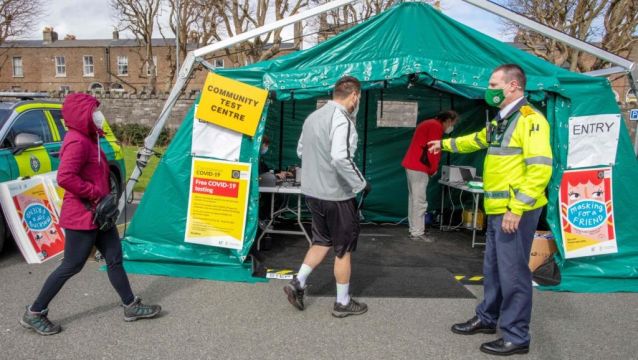A targeted approach to testing and tracing for Covid-19 is the way forward in Ireland, according to member of the National Public Health Emergency Team (Nphet) Professor Mary Horgan.
Prof Horgan, the president of Royal College of Physicians of Ireland, said the recommendation was that testing and tracing would be targeted to those who are more vulnerable, and more likely to end up in hospital or seriously ill from the infection.
The ability remained to upscale and downscale the testing and tracing system as necessary, she added.
“I think having a more targeted approach is the way forward. It's more sustainable, but also the ability to turn on testing widely again if that is required,” she told RTÉ radio’s Morning Ireland.
“We certainly are at a different phase of the pandemic than we were this time last year, indeed two years ago, it really is a good news day.”
Prof Horgan added that a recommendation that people isolate if they have symptoms until the symptoms are gone remained. “The hope is that they will. If you look at what the people of Ireland have done over the past two years it's been so good - that's why we are where we are today and people do have an understanding of what the symptoms are, what they need to do so that they protect, not only themselves, but those that they interact with in their families, in their communities and so on.”
Masks recommended

Mandatory mask recommendations, except for healthcare settings, will be gone, Prof Horgan said. That did not mean that people should not wear them if they felt comfortable doing so, she said.
“We are adaptable, it will take a while for many people to not wear masks fully, their use in certain situations, particularly crowded situations will be recommended. It's the mandatory nature that's gone.”
Vulnerable people had not been abandoned, she said. “As a country we need to support those that feel they are vulnerable, we have done that with continuing testing, also they have been vaccinated. Four doses really reduces risk of hospitalisation and death by 90 per cent, it's up to us not in vulnerable groups to support those in vulnerable groups to getting back to living life to the full.”
Prof Horgan said that the mood at Thursday’s meeting of Nphet had been “very upbeat” and that in its two years “we felt we had achieved a lot.”







